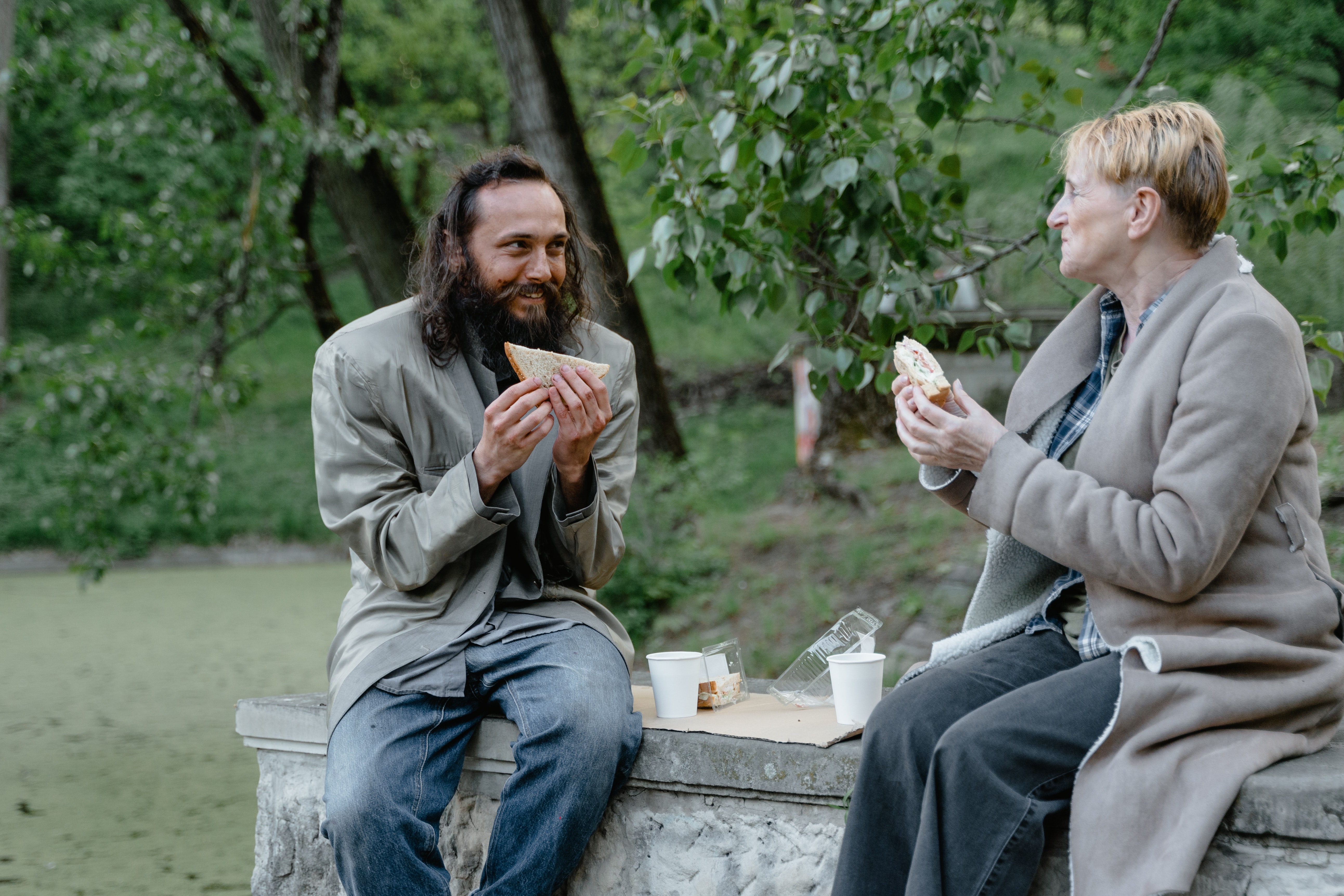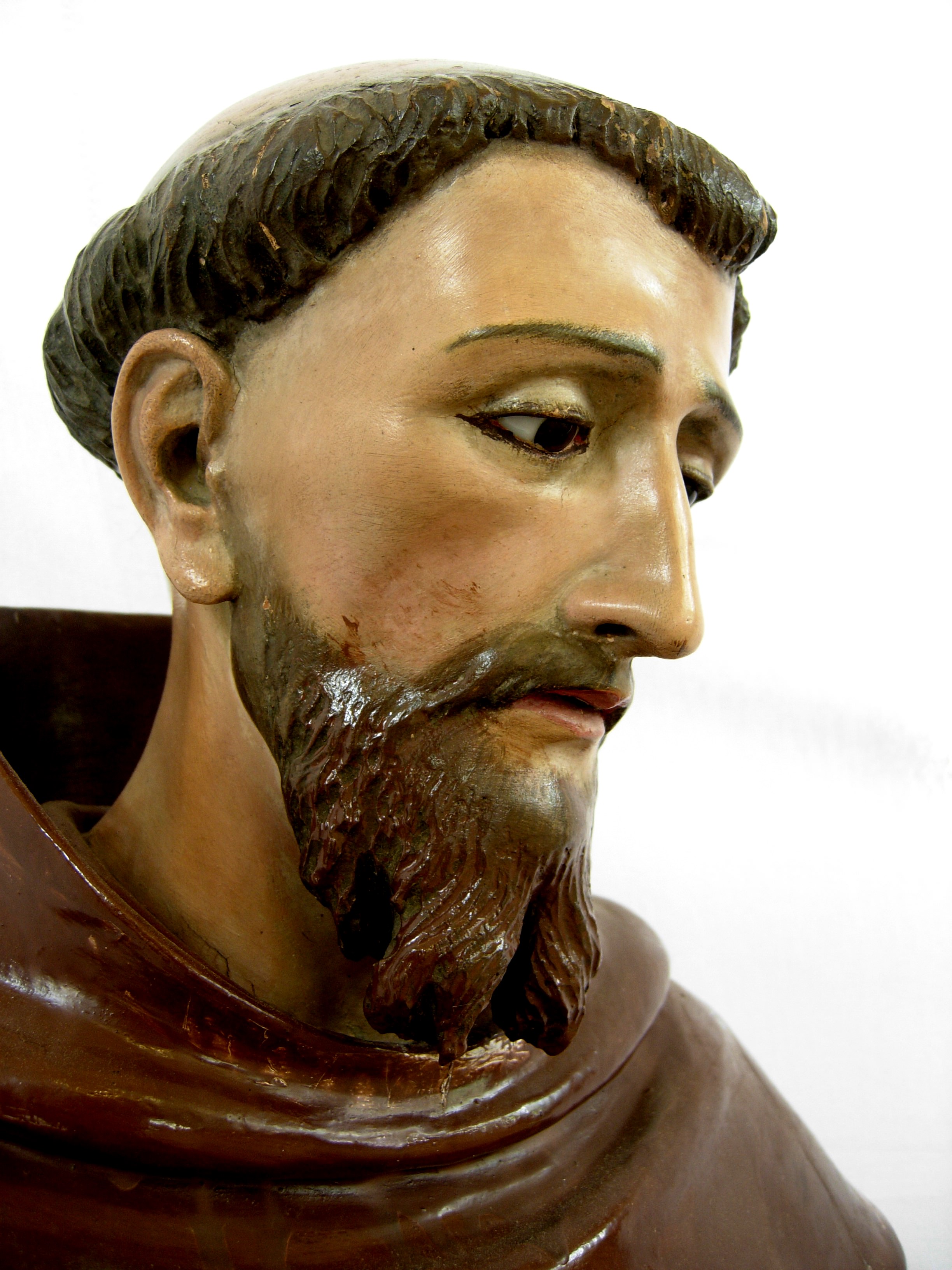As I read the newspaper, listen to the news, and hear the stories told of those dealing with hardship, I reflect on the many situations of the “neighbor” in my backyard, community and many other places in the world. It can be overwhelming. But it need not be.
In today’s Gospel, the lawyer is intent on justifying himself. Truly, we’ve all been there and done that! He is not intent on the heart of the matter, although, by the end of the story he is able to get it: “the one who showed mercy.” Jesus resorts to a story to help the lawyer get to that point. We need that story too. It’s a story about an individual and those who encountered him and what they did about it.
We too have a story to tell. Each day that story gets a little longer. It’s a story about an individual, or rather a person: you, me. “Person” is a wonderful word to use here since it comes from the Greek “prosopon” which indicates the face and one who is in relationship. By nature, we are all in relationship, whether we admit it or not. It is a gift and a blessing to be able to live out our lives in relationship with others, embracing the gift of the other, no matter what challenges might come along with it.
And we embrace those challenges willingly, with the help of the Lord, our Way, since right worship is not only connected to a right relationship with God, but also right relationship with our neighbor. It’s something that we live each day, so we want to be mindful that, “… if you are offering your gift at the altar, and there remember that your brother has something against you, leave your gift there before the altar and go; first be reconciled to your brother, and then come and offer your gift.” (Mt 5:23-24).
Each day, as a person, our gifts, (those both given and received) and our story unfolds. Some of the questions that can help us to live out this precious story are: “What kind of person am I becoming?” and “What kind of world do I want to live in?” My answer to that is always along the lines of: A person who looks on others as the Father does. A world where we show mercy to one another and help one another, where we listen, encourage, and give of ourselves.
As you ponder your own answers to these questions, I would encourage you to turn to Jesus and ask him to lend you his heart, to help you have the compassion he wants you to live this day. He died to show mercy to me and to you. I want to be that mercy for others today, with his help and relying on him always.
Mientras leo el periódico, escucho las noticias y escucho las historias de quienes enfrentan dificultades, reflexiono sobre las muchas situaciones del “prójimo” en mi patio trasero, comunidad y muchos otros lugares del mundo. Puede ser abrumador. Pero no tiene por qué serlo.
En el evangelio de hoy, el abogado está empeñado en justificarse a sí mismo. ¡En verdad, todos hemos estado allí y hemos hecho eso! No está interesado en el meollo del asunto, aunque, al final de la historia, puede entenderlo: “El que tuvo compasión de él“. Jesús recurre a una historia para ayudar al abogado a llegar a ese punto. Necesitamos esa historia también. Es una historia sobre un individuo y aquellos que lo encontraron y lo que hicieron al respecto.
Nosotros también tenemos una historia que contar. Cada día esa historia se hace un poco más larga. Es una historia sobre un individuo, o más bien una persona: tú, yo. “Persona” es una palabra maravillosa para usar aquí ya que proviene del griego “prosopon” que indica el rostro y alguien que está en relación. Por naturaleza, todos estamos en relación, lo admitamos o no. Es un regalo y una bendición poder vivir nuestras vidas en relación con los demás, abrazando el regalo del otro, sin importar los desafíos que puedan surgir con él.
Y aceptamos esos desafíos de buena gana, con la ayuda del Señor, nuestro Camino, ya que la adoración correcta no solo está relacionada con una relación correcta con Dios, sino también con una relación correcta con nuestro prójimo. Es algo que vivimos cada día, por eso queremos tener presente que, “…si en el momento de llevar tu ofrenda al altar recuerdas que tu hermano tiene algo contra ti, deja allí tu ofrenda ante el altar y ve primero a reconciliarte con tu hermano; luego regresa y presenta tu ofrenda”. (Mt 5, 23-24).
Cada día, como persona, se desarrollan nuestros dones (tanto los dados como los recibidos) y nuestra historia. Algunas de las preguntas que nos pueden ayudar a vivir esta preciosa historia son: “¿En qué tipo de persona me estoy convirtiendo?” y “¿En qué clase de mundo quiero vivir?”. Mi respuesta a eso siempre está en la línea de: Una persona que mira a los demás como los mira el Padre. Un mundo donde mostremos misericordia unos a otros y nos ayudemos unos a otros, donde nos escuchemos, animemos y nos demos.
Mientras reflexionas sobre tus propias respuestas a estas preguntas, te animo a volverte a Jesús y pedirle que te preste su corazón, para ayudarte a tener la compasión que Él quiere que vivas este día. Él murió para tener misericordia de mí y de ti. Quiero ser esa misericordia para los demás hoy, con su ayuda y confiando en él siempre.
 Sr. Mary Martha Moss, FSP has had the grace of serving the Lord for over 40 years as a Daughter of St. Paul. Joyfully engaged in the community’s media ministry, she has authored 3 children’s books, presented on various topics for adult faith formation, enjoyed running Online Book Studies, served as a Pauline Book & Media Center manager and continues singing the alto part with the Daughters of St. Paul Concert Choir.
Sr. Mary Martha Moss, FSP has had the grace of serving the Lord for over 40 years as a Daughter of St. Paul. Joyfully engaged in the community’s media ministry, she has authored 3 children’s books, presented on various topics for adult faith formation, enjoyed running Online Book Studies, served as a Pauline Book & Media Center manager and continues singing the alto part with the Daughters of St. Paul Concert Choir.
Feature Image: Mart Production, pexels.com/photo/homeless-people-eating-in-the-park-8078548/


 Kate Taliaferro is an Air Force wife and mother. She is blessed to be able to homeschool, bake bread and fold endless piles of laundry. When not planning a school day, writing a blog post or cooking pasta, Kate can be found curled up with a book or working with some kind of fiber craft. Kate blogs at
Kate Taliaferro is an Air Force wife and mother. She is blessed to be able to homeschool, bake bread and fold endless piles of laundry. When not planning a school day, writing a blog post or cooking pasta, Kate can be found curled up with a book or working with some kind of fiber craft. Kate blogs at 
 Kathryn Mulderink, MA, is married to Robert, Station Manager for Holy Family Radio. Together they have seven children (including Father Rob), and seven grandchildren. She is President of the local community of Secular Discalced Carmelites and has published five books and many articles. Over the last 30 years, she has worked as a teacher, headmistress, catechist, Pastoral Associate, and DRE, and as a writer and voice talent for Catholic Radio. Currently, she serves the Church by writing and speaking, and by collaborating with various parishes and to lead others to encounter Christ and engage their faith. Her website is
Kathryn Mulderink, MA, is married to Robert, Station Manager for Holy Family Radio. Together they have seven children (including Father Rob), and seven grandchildren. She is President of the local community of Secular Discalced Carmelites and has published five books and many articles. Over the last 30 years, she has worked as a teacher, headmistress, catechist, Pastoral Associate, and DRE, and as a writer and voice talent for Catholic Radio. Currently, she serves the Church by writing and speaking, and by collaborating with various parishes and to lead others to encounter Christ and engage their faith. Her website is 




 Emily Jaminet is a Catholic author, speaker, radio personality, wife, and mother of seven children. She earned a bachelor’s degree in mental health and human services from the Franciscan University of Steubenville. She is the co-founder of
Emily Jaminet is a Catholic author, speaker, radio personality, wife, and mother of seven children. She earned a bachelor’s degree in mental health and human services from the Franciscan University of Steubenville. She is the co-founder of 
 Sheryl is happy to be the number 1 cheerleader and supporter for her husband, Tom who is a candidate for the Permanent Diaconate in the Diocese of Kalamazoo. They are so grateful for the opportunity to grow together in this process. Sheryl’s day job is serving her community as the principal for St. Therese Catholic School in Wayland, Michigan. Since every time she thinks she gets life all figured out, she realizes just how far she has to go, St. Rita of Cascia is her go-to Saint for intercession and help. Home includes Carlyn, a very, very goofy Golden Retriever and Lucy, our not-so-little rescue puppy.
Sheryl is happy to be the number 1 cheerleader and supporter for her husband, Tom who is a candidate for the Permanent Diaconate in the Diocese of Kalamazoo. They are so grateful for the opportunity to grow together in this process. Sheryl’s day job is serving her community as the principal for St. Therese Catholic School in Wayland, Michigan. Since every time she thinks she gets life all figured out, she realizes just how far she has to go, St. Rita of Cascia is her go-to Saint for intercession and help. Home includes Carlyn, a very, very goofy Golden Retriever and Lucy, our not-so-little rescue puppy. 





